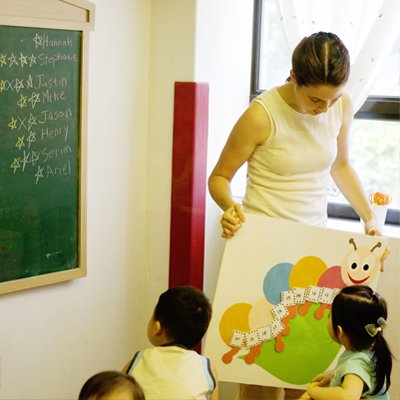Foster Child to Manage Their Own Time
Time Management is one of the self-management abilities that the parent looks forward their child to have, but it is not a simple task to foster them. Even though some of the adult could not tackle the matter of time, the reason is they have not been trained when they were child. Time management has to be educated from the childhood.
First of all, we should recognize how many tasks we have to do every days, this is the fundamental training of cognition. For examples, which subjects of homework you have? How many homework you have? Which subjects have to review? May be it will happen in primary school rather than in kindergarten; however, we should start the training. Certainly, we could teach the child to use the method of elimination or augmentation, then, they will find out how many tasks they have to manage. Since then, we need choice after we recognize how many tasks we have. Cognitively, child may or may not recognize which is/are the important tasks. For instances, enjoy the tea time, or watching TV programs, these are the indispensable activities in their lifestyle. Yet, which is/are more important? The parents try to elaborate to them carefully and gradually, let them to understand the preference. Recognize the task. Know the tasks. Arranging the appropriate time schedule is the following step. Some parent is impetuous, and they never waste any seconds to boost the child to do the homework, along with revision. Is it really rude? Or we have to consider the circumstances. How about the status of your child? Tired, moody, or too hungry and whatnot, these are not the proper time to do them. The child could learn to complete the tasks at the appropriate time; so that, it is more efficient. Sometimes, finish his/her tea time, even watch 30 minutes TV programs first would be better than do the homework while just go home. The child would, also, feel you are caring him/her. Nevertheless, some activities would be not done, otherwise, it become unwieldy.
The time schedule is another important step that the child does learn. They know themselves clearly than all of the people in the world. They could predict the lead time of every tasks. In case they make the mistake, don’t try to correct them but you could remind them some criteria. Later on, let them to take part the schedule. When finish one day, parent would evaluate with the child. Guiding and explore the evaluation or reflection is the most important chapter. Provide that the parent have already pointed out their problems before execution, two problems would emerge at least. One is the child could not learn “self-management”; the next one is lack of self-confident, owing to be noted directly that make the child feels he/she has problem. Thus, let them do it freely, and company with them to reflect, examine, and evaluate. The parent would employ the exploring questions for them to learn the time-management. Two of the typical questions are “Has any task over time, or remain time?” or “Which task could put it more forward position?” These sorts of questions could assist the children to clarify how to run his/her own time schedule. In addition, the time theories or philosophy could be the enhanced value for them to understand more and more advantages of saving time which have been taught by the parents; on the other hand, they could comprehend to what extent that time management could be the auxiliary tool of well-being.
The Above method of fostering Time-management could not suit for the child only, for the parent, it is the good ways to schedule your time to take care your children. The most important elements to run this method are patient, love, and empathy. Eddy Psychotherapist
|
|
















.jpg)


